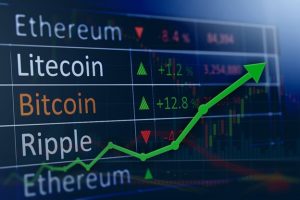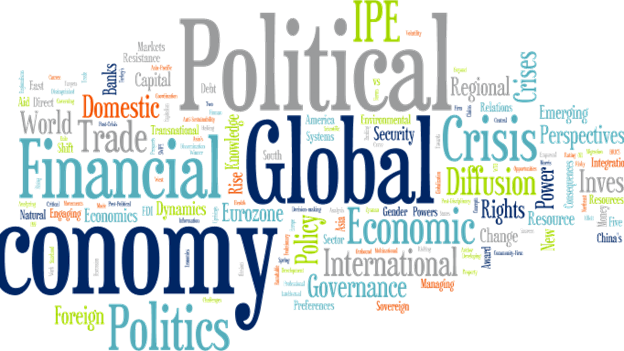As we delve into the intricate dynamics shaping the future economic landscape, it is imperative to consider several pivotal trends that are poised to redefine global economic paradigms. These shifts, ranging from technological advancements to demographic changes, not only forecast a transformation in the way economies operate but also highlight the need for adaptive strategies to navigate the impending economic evolution.
Global Economic Shifts and Their Implications
The current economic trends unequivocally indicate a global pivot towards green, sustainable investments. This shift is not merely a reflection of an increased environmental consciousness but also an acknowledgment of the long-term economic benefits and resilience provided by sustainable practices. Concurrently, the rising adoption of technology is reshaping economic trends, significantly boosting digital economies. This digital transformation, fueled by innovations in artificial intelligence, blockchain, and the Internet of Things (IoT), is creating new economic opportunities while disrupting traditional business models.
The Rise of Digital Currencies and Financial Technology

The emergence of digital currencies is a defining aspect of future economic trends. These innovative transaction mechanisms offer a glimpse into a future where traditional financial infrastructures are revolutionized by blockchain technology. Similarly, financial technology (FinTech) is driving efficiency across global economic landscapes, simplifying processes, reducing costs, and enhancing accessibility to financial services. Together, digital currencies and FinTech are laying the groundwork for a more inclusive and efficient global economic system.
Sustainability and Green Economy Trends
The global economy is increasingly aligning with sustainability and green economy trends. This alignment is driven by the recognition of sustainability not only as an ethical imperative but also as a fundamental component of long-term economic success. Future economic trends will, therefore, prioritize sustainability, integrating it into business models across sectors. This paradigm shift towards eco-friendly practices is expected to spur innovation, open new markets, and promote economic resilience.
Changing Demographics and Economic Impacts
Shifting demographics are significantly influencing future economic trends. An aging population presents a dual challenge: it necessitates adjustments in healthcare, social security, and employment policies while also posing potential constraints on economic growth. Addressing these demographic changes requires innovative approaches to sustain economic vitality, including policies that encourage workforce participation among older adults and investments in technologies that enhance productivity.
The Future of Work and Automation
Automation presents a complex narrative in the future of work. On one hand, economic trends indicate a rise in automation-driven workforce displacement, raising concerns about job losses and income inequality. On the other hand, future economic trends suggest that increased productivity through advanced automation technologies can spur economic growth and create new employment opportunities in sectors that leverage these technologies. Navigating this transition necessitates strategic investments in education and training to equip the workforce with the skills required in an increasingly automated economy.
Trade Wars and Globalization Trends
The impact of trade wars on future global economic trends cannot be overstated. While intended to protect domestic industries, trade wars can disrupt global supply chains, inflate prices, and dampen economic growth. Conversely, globalization trends continue to shape the trajectory of future economic trends, promoting international trade and investment. Balancing the benefits of globalization with the need to protect domestic interests will be a key challenge for policymakers.
Innovations in Healthcare and Economic Growth
Healthcare innovations are driving positive shifts in future economic trends. Advances in medical technology, biotechnology, and pharmaceuticals are not only improving health outcomes but also contributing to economic growth. These innovations, by extending life expectancy and enhancing the quality of life, are key indicators of upward economic trends. Investing in healthcare innovation is thus essential for fostering a healthier, more productive population and stimulating economic development.
Emerging Markets and Their Role in Global Economy

Emerging markets are increasingly pivotal in shaping future global economic trends. Their rapid growth dynamics, characterized by expanding middle classes and increasing technological adoption, offer significant economic opportunities. As these markets continue to integrate into the global economy, their influence on economic trends will only grow, underscoring the importance of engaging with these regions through trade, investment, and collaboration.
The Impact of Artificial Intelligence on Economic Structures
Artificial Intelligence (AI) is at the forefront of transforming economic structures. AI-driven automation is reshaping labor markets, with implications for employment, income distribution, and productivity. Moreover, AI’s role in decision-making and innovation sets new precedents for economic trends, offering unprecedented efficiencies and capabilities. Embracing AI, while addressing its societal impacts, is crucial for leveraging its potential to drive future economic growth.
Conclusion
In conclusion, the future economic landscape is being shaped by a confluence of trends, from the rise of digital economies and sustainability to demographic shifts and AI-driven transformations. Navigating these trends requires a nuanced understanding of their implications and strategic actions to harness their potential while mitigating associated challenges. As we stand on the cusp of this economic evolution, the decisions made today will undoubtedly shape the economic realities of tomorrow.









